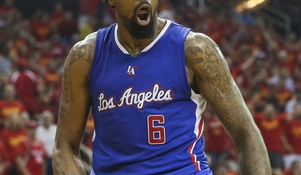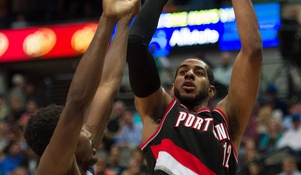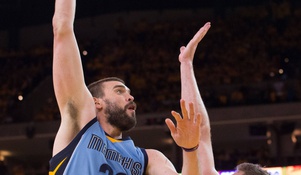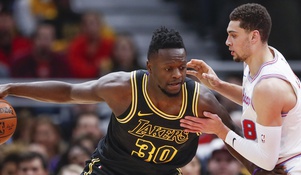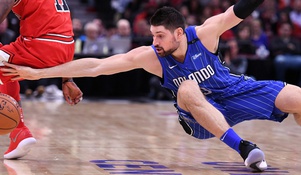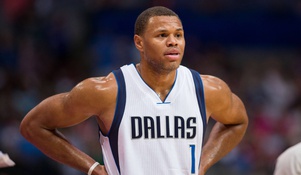Mavericks' Free Agent Target Analysis: Tyson Chandler
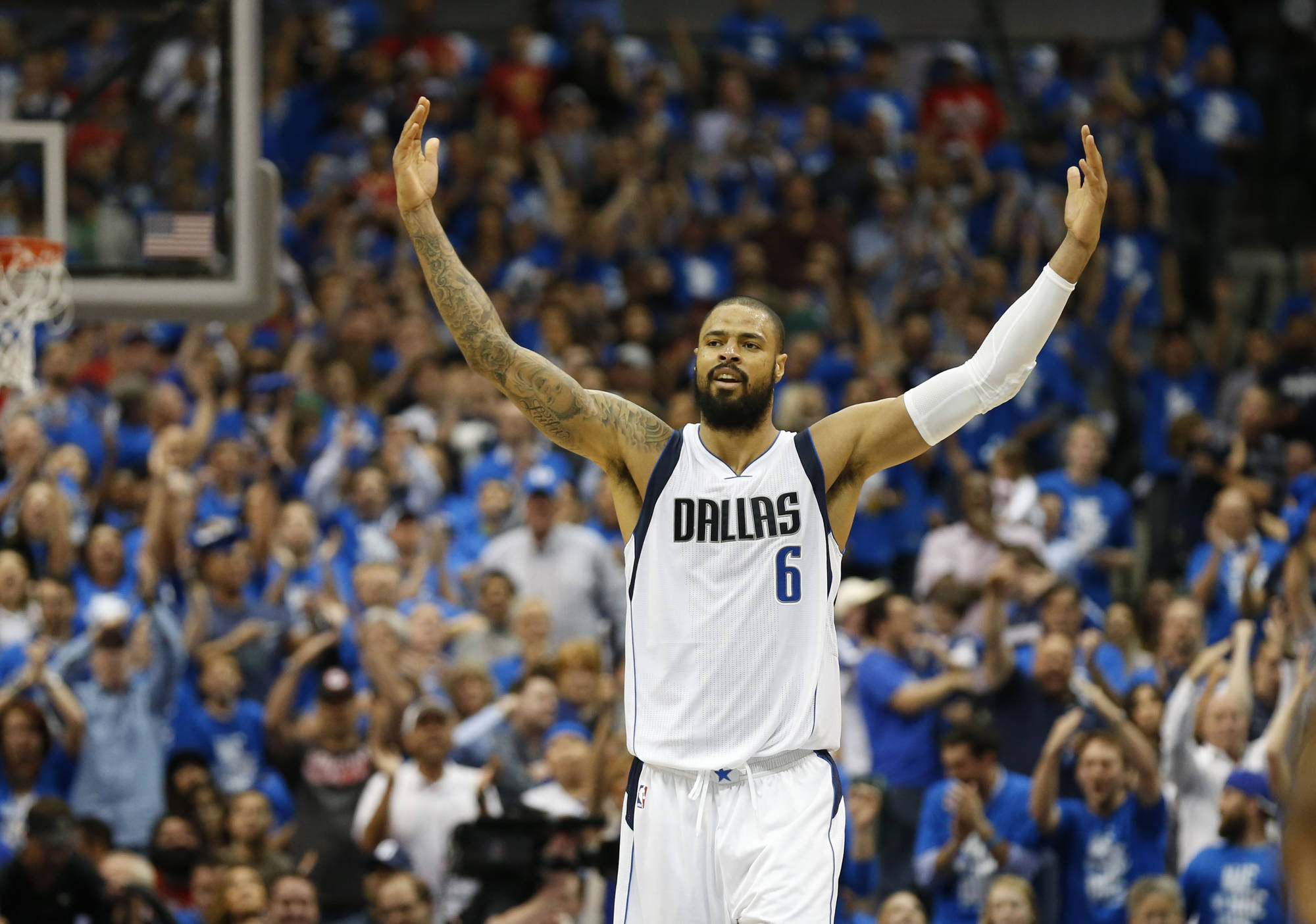
Now, for our final big-name-ex-Maverick target, (before we get into the other big name free agents out there) we will analyze Tyson Chandler. Tyson has been the backbone of this Mavs’ defense for both of his runs in Dallas: 2010-2011 and 2014-2015. Along with being a defensive machine, Chandler was a rebounding machine. Everyone in Dallas loves Tyson and Tyson loves everyone in Dallas, so could Cuban and the Mavs really let him go… again?
Career History:
Tyson has bounced all over the NBA since he was drafted out of high school in 2001. The Clippers took the 7’1 beast with the second overall pick but traded him to Chicago on draft night. He was a defensive beast right when he entered the league but struggled to stay on the floor much with back issues and constant foul trouble. The Bulls decided to stick with Ben Wallace as the starting center and traded Tyson to the New Orleans Pelicans (then Hornets) in the 2006 offseason. In just his second year with the Hornets, Tyson averaged a double-double with nearly 12 points and 12 rebounds per game. After a phenomenal 3 seasons with the Hornets, the team agreed on a trade with the (then) Charlotte Bobcats as Tyson was swapped for Emeka Okafor. Injuries plagued Chandler’s one year with Charlotte, so the team gave up on him. Dallas was quick to make an offer to Charlotte and made a decent package of players to swap for Tyson and Alexis Ajinça. Chandler was an immediate fan-favorie and the move made the Mavs an instant playoff contender, ultimately leading to the improbable 2011 championship run (ah, memories). After the CBA made it basically impossible to resign Tyson, the Mavs, Knicks, and Wizards agreed on a 3-team trade that sent Chandler to team up with Amar’e Stoudemire and Carmelo Anthony in New York. Tyson’s career continued to improve in New York as he was voted the Defensive Player of the Year in 2012. This last offseason, the Knicks decided to go younger and trade Tyson Chandler away. The Mavs were eager to swoop him up again. Dallas sent José Calderon, Wayne Ellington, Samuel Dalembert, Shane Larkin, and both of their 2014 draft picks to New York in exchange for Tyson and Raymond Felton (who recently opted into his contract). We all witnessed Tyson’s incredible play this year; and it could be argued that he is just getting better with age. Cuban admitted that not resigning Tyson in 2011 was a big mistake, so does he have any reason to let him go again in 2015? Let’s explore:
PROS AND CONS OF TYSON CHANDLER:
Pros:
• Leadership/Locker room presence. Tyson makes a huge difference on the court, but the difference that he makes off of the court is just as big, if not bigger. Dirk Nowitzki will always be the face of the Mavs, but he is not the vocal leader that teammates look to for inspiration or direction; that would be Tyson Chandler. Having a united locker room is one of the main things any team needs in order to be successful. One team could have all of the talent in the world, but if the guys don’t get along then they don’t have a shot (thanks Rondo). Thankfully, Tyson is well respected by almost everyone and people learn to love their teammates with him around. Except for Rajon Rondo, but screw that guy.
• Crashing the glass. Do I really need to explain this? Isn’t it obvious when you watch the dude play? Well anyway, Tyson was by far the best rebounder on the 2014-2015 Dallas Mavericks and basically every other team he’s been on. Chandler averaged 11.5 boards per game (nearly 8 defensive and 4 offensive). The next best rebounder for Dallas? Dirk Nowitzki with a little over 5 boards per game. The Mavs ended up in dead last for rebounding as a team, but Chandler never failed to fight for a single loose ball.
• Defensive anchor. This one is almost as obvious as the rebounding. Tyson Chandler was one of the Mavericks’ two reliable defenders - the other being Al-Farouq Aminu. Other coaches avoided going to the basket when Chandler was standing in the paint, but when he was out, well, there were problems. Tyson was in the top 30 for blocks per game in the league and snagged almost 8 rebounds per game (as mentioned before). Needless to say, Chandler’s presence was the only reason this team’s defense was even respectable.
• Continuous improvement on offense. Tyson has always been dominant around the rim, but his involvement on offense just continues to grow. Perhaps the most exciting and effective play in the Carlisle’s’ book was the pick & roll with Tyson as the roller. This play didn’t happen as much when Rondo was inserted into the lineup (still hate Rondo), but Jameer Nelson, Devin Harris, and JJ Barea were always ready to toss the lob to Chandler. His ferocious dunks off the lob not only sent a wave of electricity through the crowd, but also opened up the floor for shooters. While Tyson’s game around the rim remains dominant, his mid-range game took a step-up last year as well. The stats weren’t all that impressive because he didn’t take that many shots away from the basket, but it was clear that Tyson has been working on his shot. The jumpers Chandler did take looked smooth, so hopefully this theme carries on.
• Mutual love. I haven’t talked to one Dallas Maverick fan that dislikes any part of Tyson’s game. I also haven’t heard of one negative comment about Dallas from Tyson Chandler. Tyson had this to say about MFFL’s in his exit interview: “I appreciate the fans here. I think they’re the best. It truly makes a difference. It makes coming and doing your job easy.” It’s obvious that Tyson would come back to the organization in a heartbeat, so why wouldn’t the Mavs pay him? Let’s look at a few reasons:
Cons:
• Age/Durability. There aren’t many downsides to Tyson’s game, but his history of injuries is pretty scary. Tyson only played in 55 games in the 2013-2014 season but, thanks to the Dallas training staff, he played 75 games this past season – his most since 2008. The Mavericks training staff is known around the league for keeping players healthy, but Tyson’s injuries are very unpredictable. Chandler will be 33 years old next season. The average NBA player retires around the age of 36. Tyson still has a lot left in the tank, but, since he was drafted straight out of high school, his career has been longer than most at 13 seasons (14 if you count next season). The Mavs shouldn’t sign him to a contract worth more than three years, if they resign him at all.
• Skill level compared to other Mavericks’ targets. Make sure you take this one into context: I am not saying Tyson Chandler isn’t one of the best bigs in the league, but compared to one of the other guys the Mavericks look to be pursuing, Tyson just isn’t as good (Hine: Rhymes with Shmeandre Shmordan). Trust me when I say that I love Tyson just as much as any other Mavs fan, but if we have the opportunity to grab someone better (and younger) we should do it.
• Unknown asking price. Tyson has made a huge impact on every team he’s been on and has made money accordingly. Chandler’s base salary has been anywhere between 9 and 12.75 million dollars, and I believe his next contract should be somewhere right in the middle. No one has heard a peep from Tyson as to what he’s expecting to make next year or if money will even be a major factor in his decision making. When asked about free agency this year and the factors he will consider, he had this to say: “You have to weigh in on everything. You have to weigh in on what’s going to be best for yourself, your psyche, how you’re going to perform, where you’re going to be most comfortable at, your family.” He never specifically mentions money, but I have a feeling that money is a part of “everything”.
I honestly can't say one completely negative thing about Tyson Chandler. He is a man’s man who plays with all the heart in the world and loves the game of basketball. He doesn’t have much of a post game, but his offensive game doesn’t require that facet; so that was not worth mentioning in the cons. I want Tyson back, but I also want that big fish center (be on the lookout for an article on Deandre Jordan VERY SOON). If we don’t land Jordan, Tyson must be a priority. But who knows, maybe Tyson would be willing to take a major pay-cut and be a dominant backup to Deandre Jordan. I don’t think it’s likely, but anything is possible. So let’s summarize the ideas for Tyson this offseason: 1) Sign Deandre Jordan and let Tyson walk for more money elsewhere. 2) Swing and miss on Jordan and make Chandler the offseason priority for a minimal pay-cut. 3) As proposed on the Ben & Skin Show: a sign-and-trade deal where the Mavs send Tyson to the Clippers for Deandre. 4) Sign DJ and Tyson if Chandler is willing to take a MAJOR pay-cut and be a backup. Tyson Chandler is so important to this locker room, and it would kill me to watch him leave again, but there are a lot of options this summer. Should be an interesting offseason for Tyson and the Mavs.

